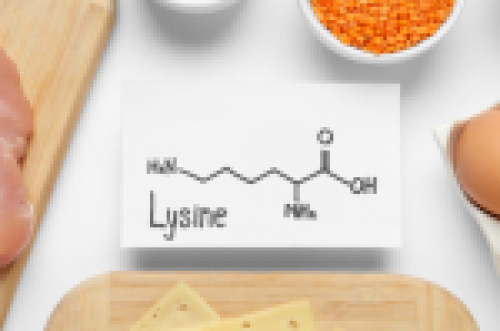Functions of Lysine in the Body

Individuals have turned to dietary supplements in the last few decades to fill nutritional gaps and support various bodily functions. Lysine, an essential amino acid, is one such supplement gaining attention for its potential benefits in supporting the body. Let’s explore the role of lysine and how its supplementation can contribute to overall health.
Understanding Lysine
Lysine is one of the nine essential amino acids that the body cannot produce on its own, necessitating intake through diet or supplementation. It plays a crucial role in protein synthesis, a process vital for the growth, repair, and maintenance of tissues within the body. Lysine is particularly important for producing collagen, a protein that forms the structural basis for skin, bones, and connective tissues.
Immune System Support
Lysine has been recognized for its role in supporting the immune system. Research suggests that lysine may inhibit the replication of certain viruses, particularly the herpes simplex virus (HSV). This property has led to using lysine supplements as a complementary approach in managing conditions like cold sores and herpes outbreaks.
Collagen Formation for Skin and Connective Tissues
Collagen is a crucial protein for maintaining skin elasticity, joint health, and overall structural integrity. Lysine contributes to collagen synthesis, ensuring that the body has an adequate supply of this protein for skin health and the proper functioning of connective tissues. As a result, lysine supplementation may promote healthy skin and support joint function.
Bone Health
Lysine plays a role in calcium absorption, contributing to developing and maintaining strong and healthy bones. By assisting in collagen formation, lysine indirectly supports bone health by providing a foundation for mineralizing bone tissues. This makes lysine a potentially valuable supplement for individuals looking to support their skeletal system.
Antioxidant Properties
Lysine also exhibits antioxidant properties, helping neutralize free radicals contributing to cellular damage and aging. As an antioxidant, lysine may protect cells from oxidative stress, thereby supporting overall health and well-being.
Athletic Performance and Muscle Health
Athletes and individuals engaged in physical activities may benefit from lysine supplementation due to its involvement in protein synthesis and muscle tissue repair. Lysine’s role in maintaining nitrogen balance within the body can be particularly relevant for those seeking to optimize muscle growth and recovery.
While lysine is readily available in various protein-rich foods like meat, dairy, and legumes, supplementation may benefit individuals with specific dietary restrictions or those seeking targeted support for immune function, skin health, bone strength, and more. As with any supplement, it is crucial to consult with a healthcare professional before incorporating lysine into your routine, especially if you have pre-existing medical conditions or are taking other medications. Embracing a holistic approach to health, including a well-balanced diet and regular exercise, remains key to achieving overall well-being.



